06:45
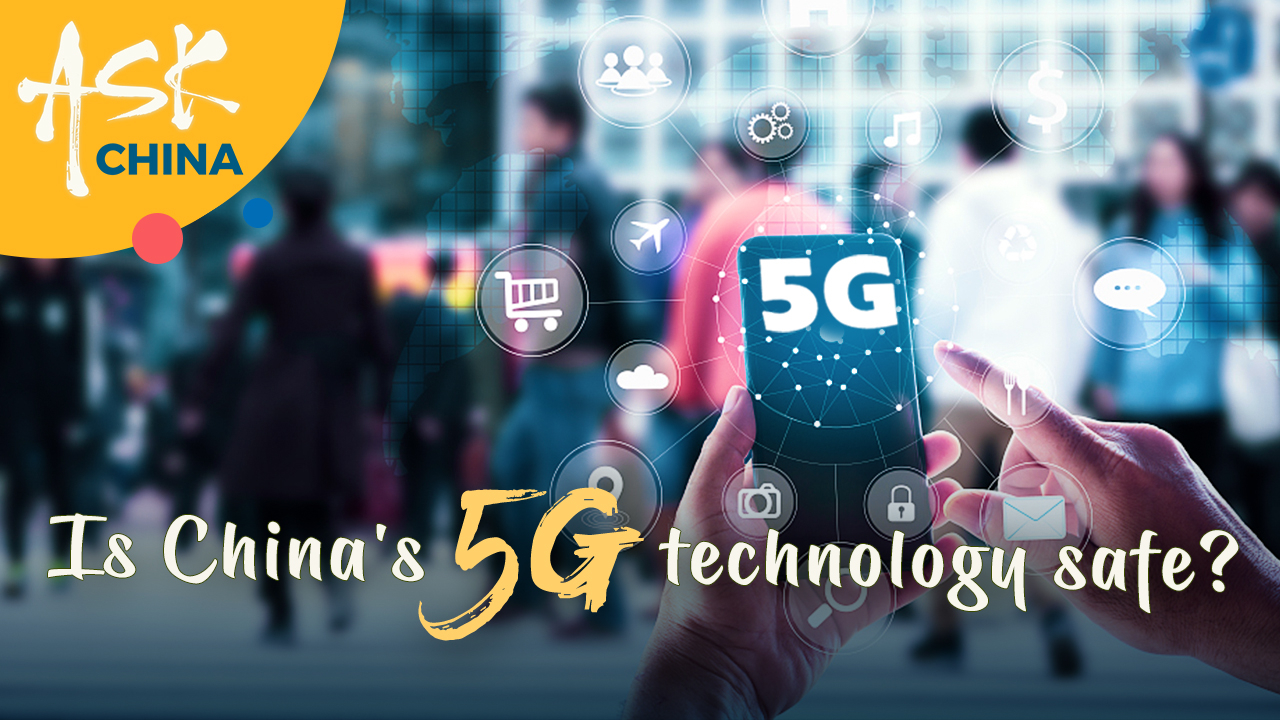
China and the U.S., the world's two largest economies, have clashed over trade starting last year.
The security concerns over China's 5G technology have also found itself to be a much discussed topic amid the spiraling conflict, following the U.S. decision to put China's telecom giant Huawei, one of the world's leading names in the development of 5G infrastructure, on its "Entity List" in May due to the alleged "national security risks."
But are the security accusations against Huawei true?
In this episode of "Ask China," CGTN has tried to discover and demystify some of the most discussed issues about 5G technology, including cybersecurity of China's 5G network, based on questions collected from its social media platforms as well as residents in more than 10 cities around the world.
Is Huawei's 5G technology safe?
Huawei and its 70 affiliates were added by the U.S. to its so-called "Entity List" on May 16, a move that barred the company from purchasing parts and components from American firms without U.S. government's approval as it is said to be "engaged in activities that are contrary to U.S. national security or foreign policy interest."
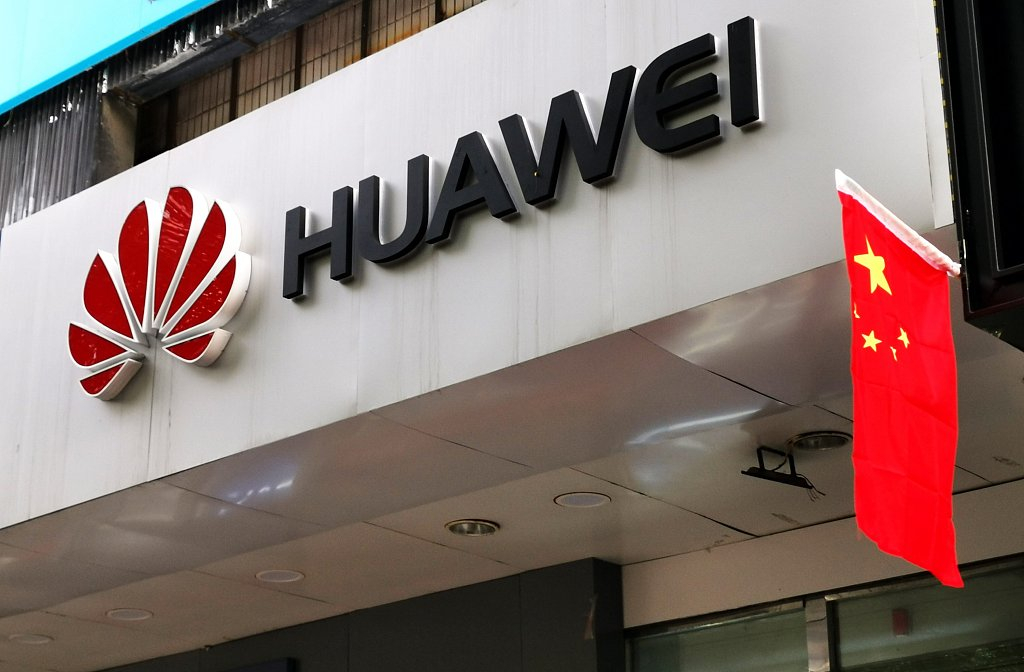
A Huawei store in Beijing, China, October 5, 2019. /VCG Photo
A Huawei store in Beijing, China, October 5, 2019. /VCG Photo
The company has repeatedly denied such claims that its products and 5G technology would be used to "spy on" other countries' telecom systems.
"To me personally, 5G is just a tool in support of future widespread artificial intelligence adoption," Huawei founder and CEO Ren Zhengfei told AP in an interview in August, adding that "the tool itself is not the most important part when we talk about security."
Ren is also considering giving an exclusive license of its 5G technology to a U.S. firm to alleviate security concerns over its equipments.

Huawei founder and CEO Ren Zhengfei speaks at the first "A Coffee with Ren" panel discussion held at the company's headquarters in Shenzhen, south China's Guangdong Province, June 17, 2019. /VCG Photo
Huawei founder and CEO Ren Zhengfei speaks at the first "A Coffee with Ren" panel discussion held at the company's headquarters in Shenzhen, south China's Guangdong Province, June 17, 2019. /VCG Photo
During the second "A Coffee with Ren" panel discussion held on September 26 at Huawei's headquarters in south China's Shenzhen, Ren said the license that may include manufacturing know-how and even the designing of chipsets would help create a "level playing field" for competitors worldwide in the race of developing the next-generation mobile networks.
So far, Huawei has signed more than 50 commercial contracts for 5G around the world as it pushes on with 5G development despite the "spying accusations."
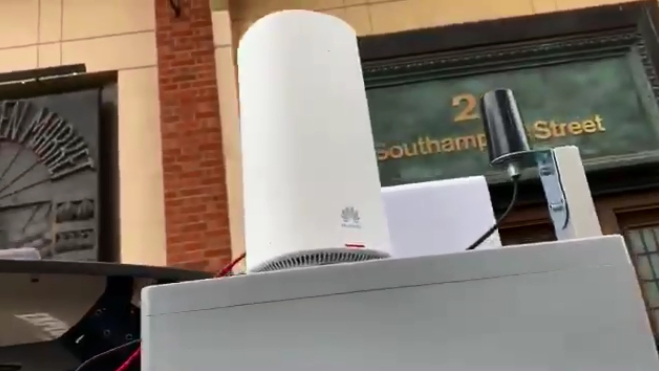
Huawei equipment used by BBC technology correspondent Rory Cellan-Jones to conduct the world's first live broadcast over 5G in London, UK, May 30, 2019. /Screenshot via Twitter
Huawei equipment used by BBC technology correspondent Rory Cellan-Jones to conduct the world's first live broadcast over 5G in London, UK, May 30, 2019. /Screenshot via Twitter
"Huawei is our partner in rolling out our 5G network," Saleem Albalooshi, chief technological officer at the United Arab Emirates (UAE) telecoms company du, was quoted as saying by Reuters on October 6, adding that it has seen no evidence of "security holes" in Huawei's 5G technology.
What's the difference between 4G and 5G?
"The difference between 4G and 5G can be summed up really in one word, and that is 'fast'," Andy Mok, a senior research fellow at the Center for China and Globalization, told CGTN in an exclusive interview while answering the most asked question about 5G on CGTN's social media platforms.

Andy Mok, a senior research fellow at the Center for China and Globalization, in an interview with CGTN. /CGTN Photo
Andy Mok, a senior research fellow at the Center for China and Globalization, in an interview with CGTN. /CGTN Photo
With up to 10 gigabits per second (Gbps) data rates, the speed of 5G is set to be 100 times faster than current 4G networks, according to previous media reports.
CGTN has checked out the speed of 5G connection itself with a Huawei 5G smartphone at Tian'anmen Square, one of the few places in Beijing to be already covered by 5G signals since February.
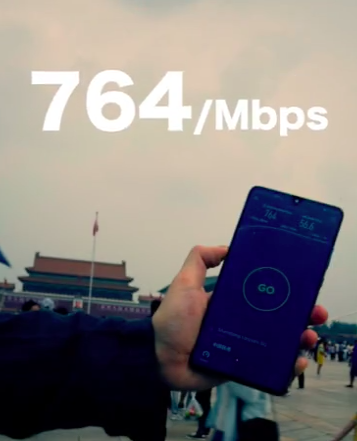
CGTN tests the speed of 5G networks at Tian'anmen Square. /CGTN Photo
CGTN tests the speed of 5G networks at Tian'anmen Square. /CGTN Photo
The test results show that the download speed under the 5G signals at Tian'anmen Square could reach up to 764 megabits per second (Mbps) – dozens of times faster than that of 4G.
Enabling tourists to enjoy high-speed internet access and smooth mobile payment in large crowds with better signals and shorter download time, the 5G network there is also expected to improve travel experience by supporting services like 4K HD video call and ultra HD multi-channel video transmission with lower latency.
"But 'fast' does not just mean faster download speeds," illustrated Andy, who also examined the possible impacts of the accelerated next-generation of wireless connectivity on people's lives, citing some of the fundamental changes in people's lifestyles thanks to the roll-out of 4G services six years ago, including the introduction of ordering foods and taxis on their smartphones.
"Many people believe that because of the government coordination, the speed of 5G roll-out will change people's lives even more quickly," he added.
When will people get access to 5G?
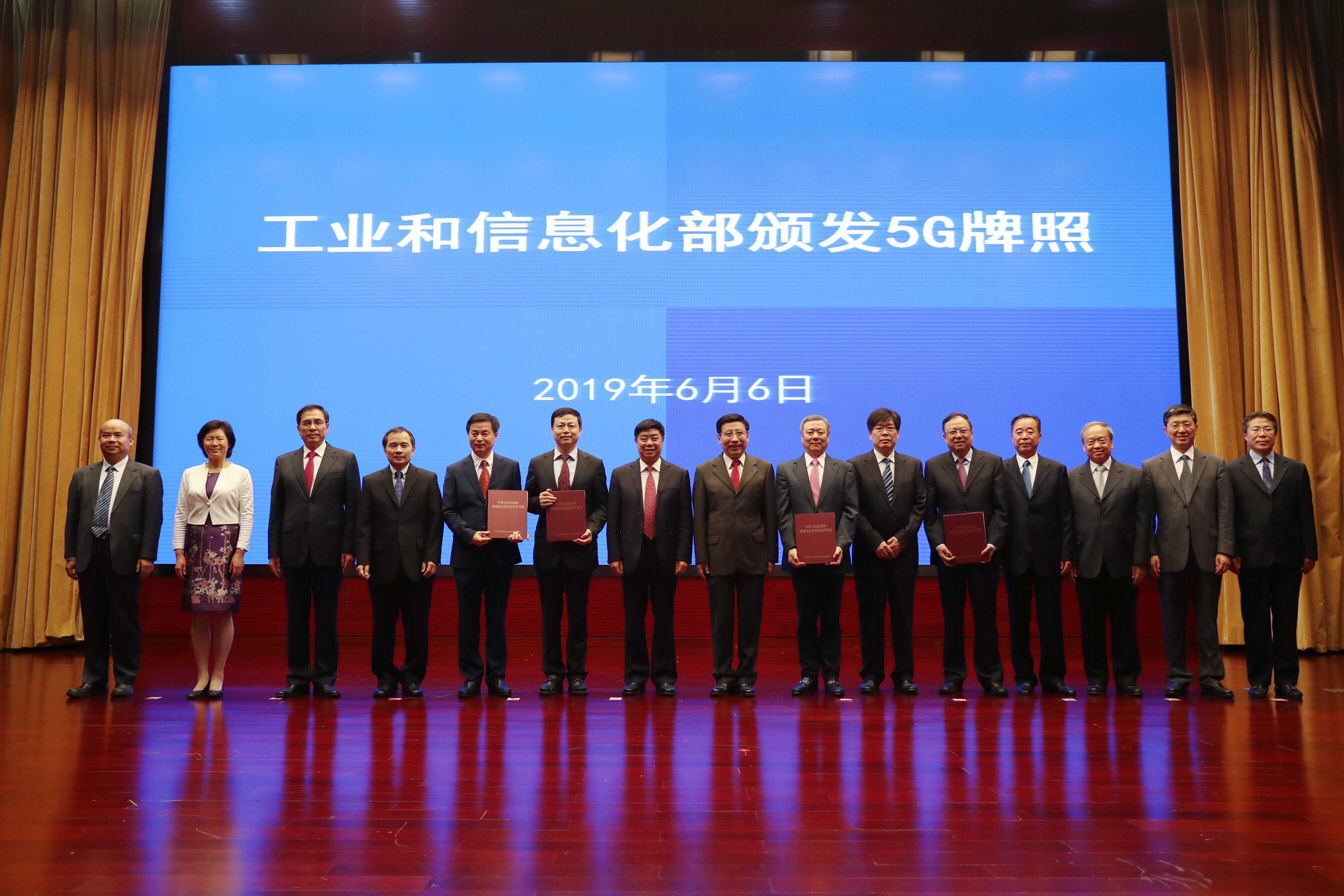
China's MIIT issues 5G licenses to four major telecom carriers for commercial use in Beijing, China, June 6, 2019. /MIIT Photo
China's MIIT issues 5G licenses to four major telecom carriers for commercial use in Beijing, China, June 6, 2019. /MIIT Photo
China's Ministry of Industry and Information Technology (MIIT) issued 5G licenses for commercial use to China's major telecom carriers including China Telecom, China Mobile, China Unicom and China Broadcasting Network in June, making the timetable of the much-anticipated commercial 5G access once again high on the agenda.
"We are actually experiencing the early days of 5G commercialization," Andy observed, pointing out that 18 cities across the country began piloting 5G in 2018 for its forthcoming commercial use.
Globally, 35 operators in 20 countries have released 5G and 33 countries have allocated 5G spectrum.
People around the world are also geared up to usher in the era of 5G with the launches of 5G handsets by multiple major smartphone manufacturers such as Huawei and Samsung, as well as the applications of 5G technology in various walks of life, for instance, rescue operation, remote surgery, and bank services.
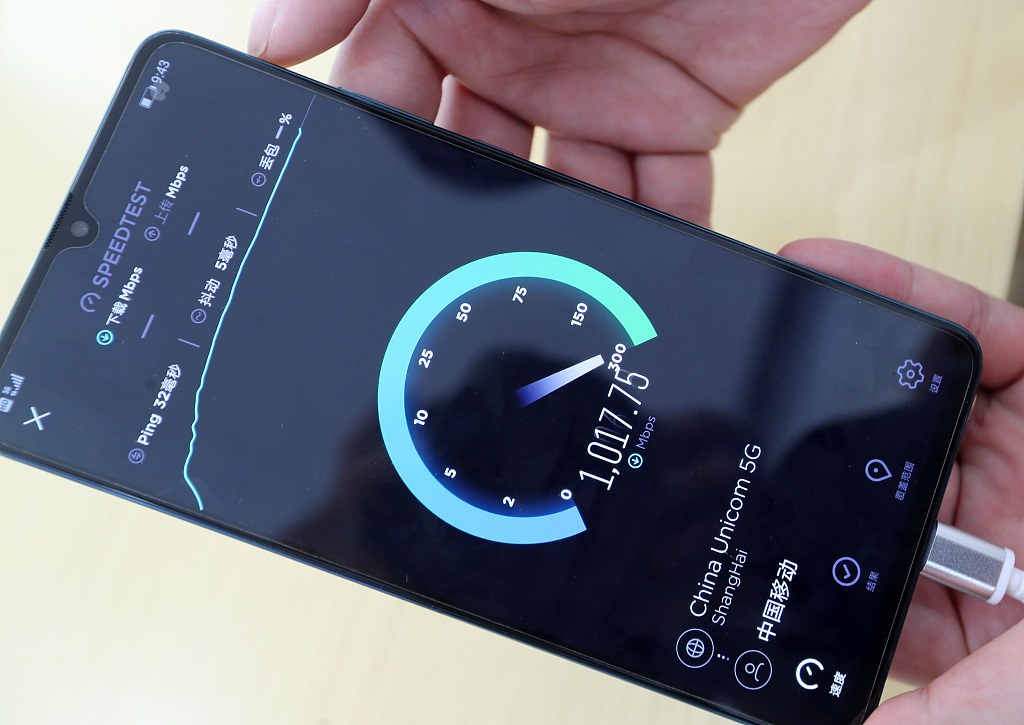
Speed test at Huawei's first-ever 5G smartphone launched on August 16, 2019. /VCG Photo
Speed test at Huawei's first-ever 5G smartphone launched on August 16, 2019. /VCG Photo
As of October 2, the number of mobile phone users in China who have pre-subscribed to 5G service contracts by China Mobile, China Unicom and China Telecom has exceeded seven million since the three telecom carries started to take pre-orders from the end of September.
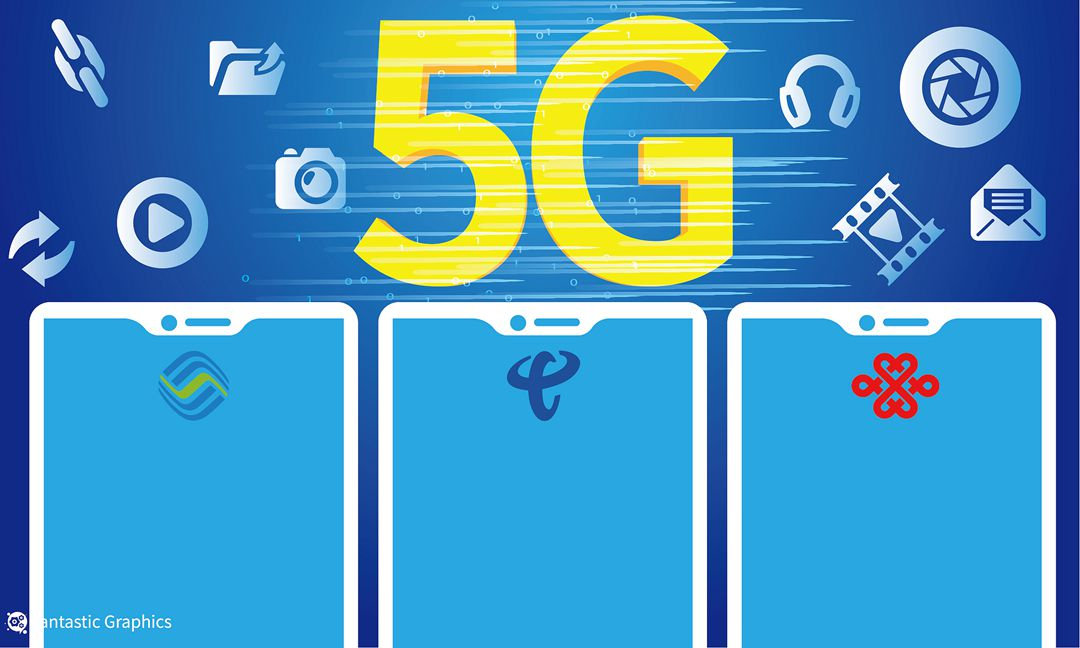
China Mobile, China Unicom and China Telecom have started to take pre-orders of 5G services from the end of September. /VCG Photo
China Mobile, China Unicom and China Telecom have started to take pre-orders of 5G services from the end of September. /VCG Photo
All three carriers have said they'll be able to provide 5G networks to at least 40 cities by the end of 2019, and their current subscribers can upgrade to 5G services without changing their phone numbers.
According to the MIIT, the full commercial roll-out of 5G is expected to take place in China by 2020 with the exact time frame yet to be unveiled.